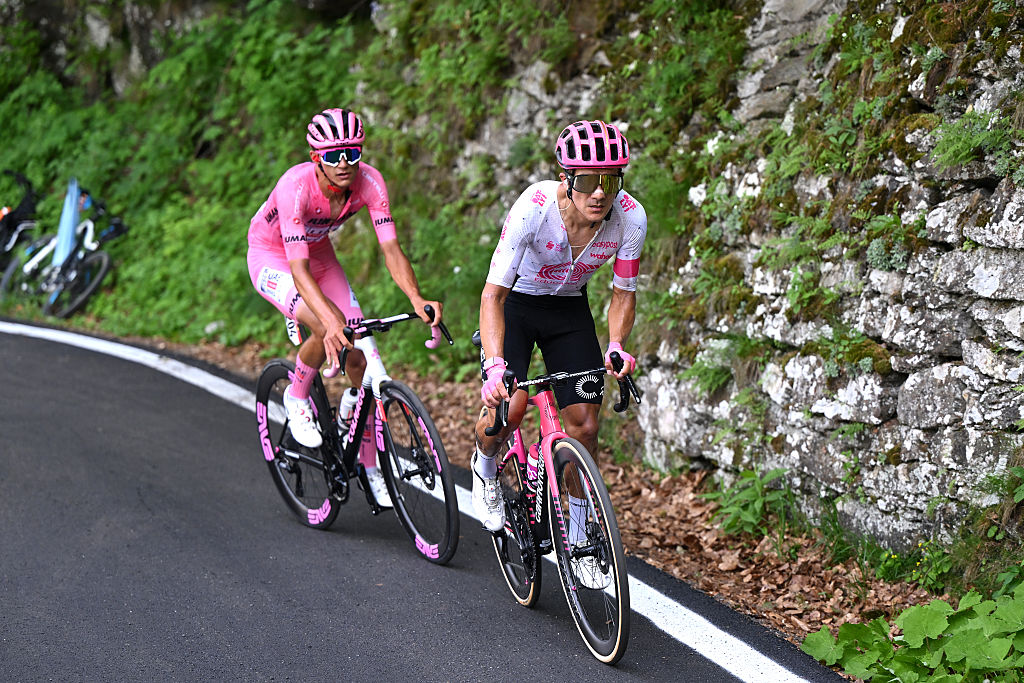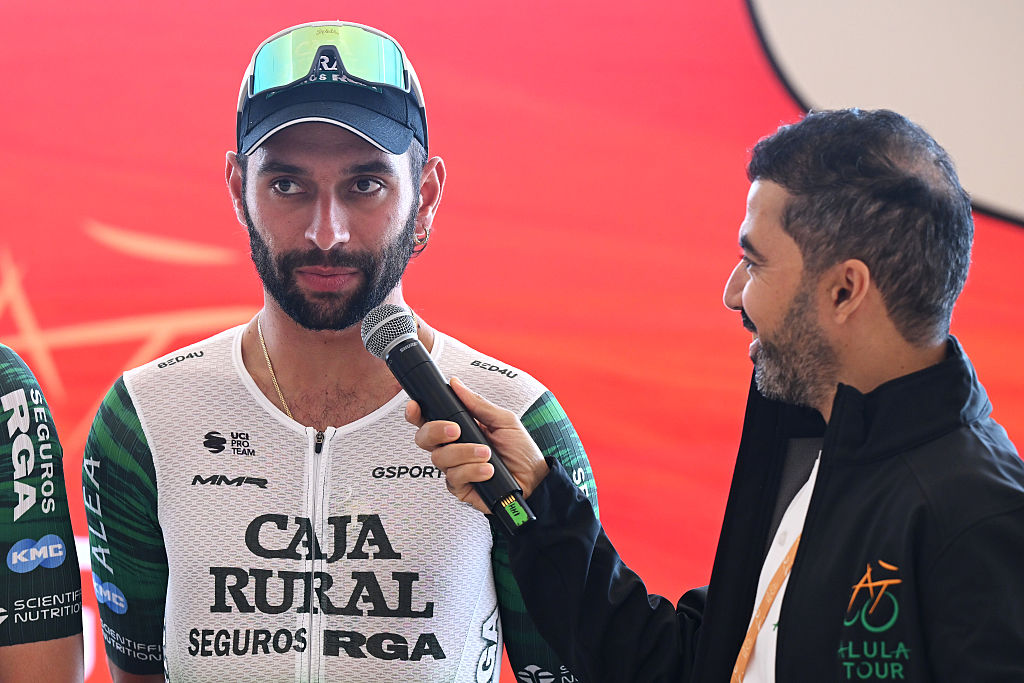'When two people argue, someone else celebrates' – Details of the Del Toro-Carapaz Giro d'Italia tactical battle emerge
'When you make mistakes, you lay the foundations for future success' says UAE directeur sportif Fabio Baldato

The latest race content, interviews, features, reviews and expert buying guides, direct to your inbox!
You are now subscribed
Your newsletter sign-up was successful
As Simon Yates and Visma-Lease a Bike savour their Giro d'Italia success, details of what really happened between Isaac del Toro and Richard Carapaz on the Colle delle Finestre have begun to emerge.
According to UAE Team Emirates-XRG directeur sportif Fabio Baldato, who was in the team car behind Del Toro, the young Mexican simply lacked the legs and the confidence to chase Yates. It was a fatal weakness and tactical mistake, with UAE unable to help as a team.
Del Toro preferred to stay with Carapaz on the Colle delle Finestre rather than chase Yates and then risk coming under attack and losing the Giro to the EF Education-EasyPost rider. UAE road captain Rafał Majka offered a similar explanation to Cyclingnews and Bici.Pro.
Neither Baldato nor Majka blamed Del Toro. They praised him for riding so well for three weeks, but losing the Giro on stage 20 hurts.
However, the history book will show that Del Toro wore the maglia rosa for 11 days but then lost it due to his fear of his biggest rival. Del Toro and Carapaz refused to ride together and so ended up 3:56 and 4:43 down on Yates, respectively, in the final general classification in Rome.
"It was a battle of nerves and legs between Isaac and Richard Carapaz, but the strongest and the smartest rider won the Giro," Baldato told Italian website Bicisport.
"We underestimated Simon Yates because he did a fantastic ride, just look at the times."
The latest race content, interviews, features, reviews and expert buying guides, direct to your inbox!
The EF team surge and Carapaz's attack at the very foot of the Colle delle Finestre distanced Del Toro's teammates and perhaps caused him to opt for a defensive strategy in the hope Majka and Brandon McNulty would join him for the valley road to Sestriere. The loss of Juan Ayuso and Jay Vine meant Del Toro had just five teammates, with the best climbers out of the race.
"Our race strategy was for Isaac to mark Carapaz because we thought he'd attack hard. We were surprised that he attacked so hard, but Isaac replied. Simon was smart because he rode at his own pace and then kept going," Baldato said.
Del Toro was aware that Yates was gaining time on the Colle delle Finestre but opted to stick with Carapaz and play poker with him by refusing to work together. The Ecuadorian was also willing to lose everything to have a chance of victory. In the end, they both lost.
"Isaac knew that Yates had Van Aert up the road in the break, we'd told him. Halfway up the climb, we tried to tell and encourage Isaac to think about Simon, too," Baldato revealed.
"We only did it once because he was the one on the bike; he knew how his legs were feeling. His goal was to reach the summit of the Colle delle Finestre with Carapaz. He opted to save his strength for the final, but they just ended up arguing with each other."
"As we say in Italian, 'Tra i due litiganti il terzo gode - When two people argue, someone else wins.'"
Baldato and Majka admitted that the Giro was lost even before the summit of the Colle delle Finestre, when Yates was the virtual maglia rosa and then had Van Aert to drag him along the valley road to Sestriere.
"When we caught him, it was late, everything happened in the last 2km of the Finestre," Majka said to Cyclingnews and BiciPro in Rome.
"We were just one step away from winning the Giro, but there was nothing we could do.
"It hurts to lose like that, but I think it will help Isaac. When you make mistakes, you lay the foundations for future success."
Baldato agreed and pushed back against any criticism of his talented young rider.
"Losing the Giro on the last big day hurts. It hurts him, it hurts me and all the team. But after a week of racing, if you said Isaac would finish second and win the white jersey, we'd have been happy," he said.
"It's easy to say afterwards that Isaac should have chased Yates, that he could have done this or that. It's easy to analyse things with hindsight and blame people. But Isaac knew the legs and energy he had.
"It's important to remember that Isaac is only 21 and it was the first time he was racing a Grand Tour, on climbs over 2,000 metres, with great riders Carapaz and Yates.
We're disappointed, but we've fully realised that we have a great rider for the future. He's only 21 and is second in the Giro. Finishing second is part of life and part of cycling; you have to always get back up and go again. That's what Isaac and all the team will do."

Stephen is one of the most experienced members of the Cyclingnews team, having reported on professional cycling since 1994. Before becoming Editor-at-large, he was Head of News at Cyclingnews. He has previously worked for Shift Active Media, Reuters and Cycling Weekly. He is a member of the Board of the Association Internationale des Journalistes du Cyclisme (AIJC).
You must confirm your public display name before commenting
Please logout and then login again, you will then be prompted to enter your display name.
